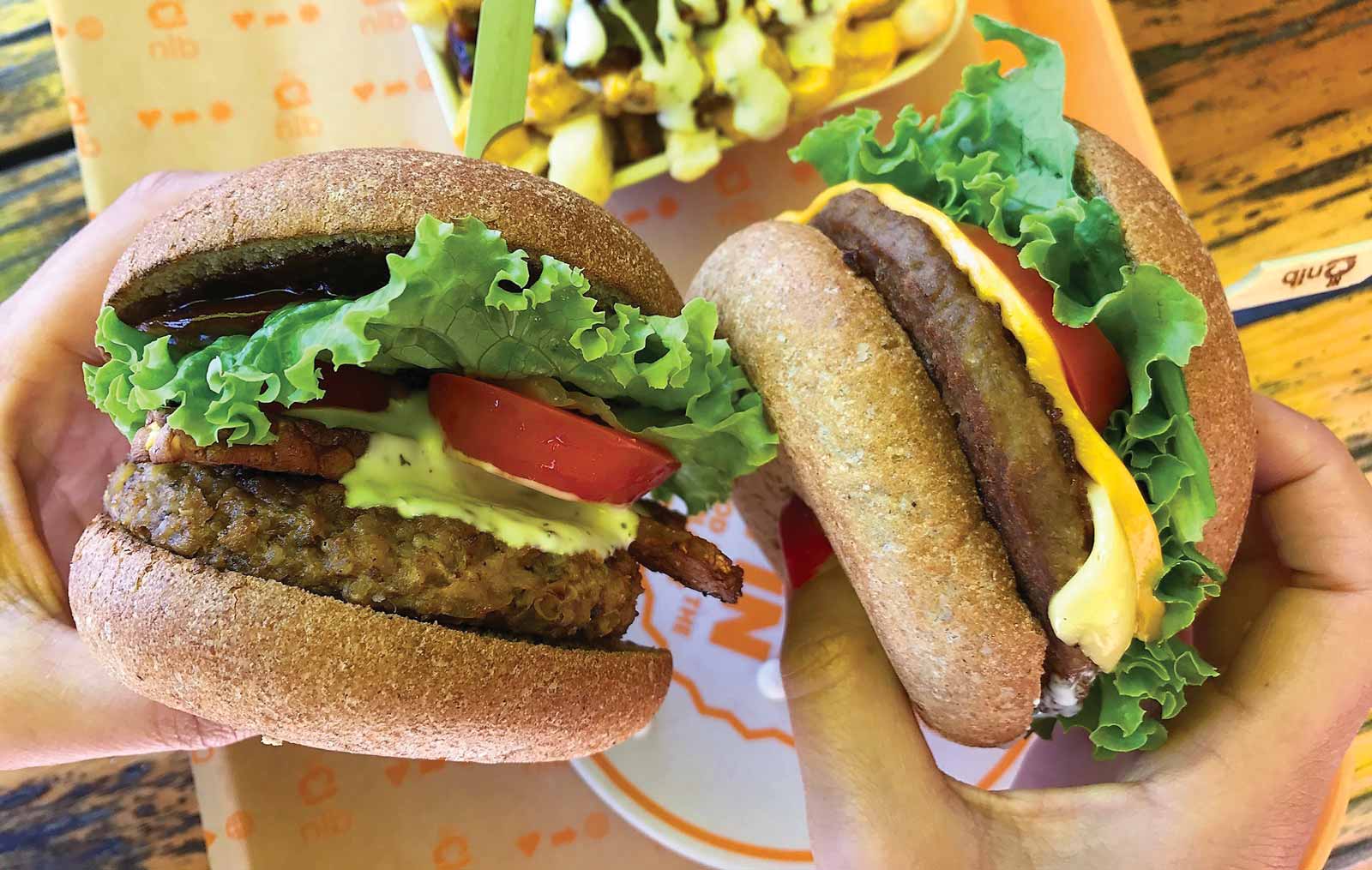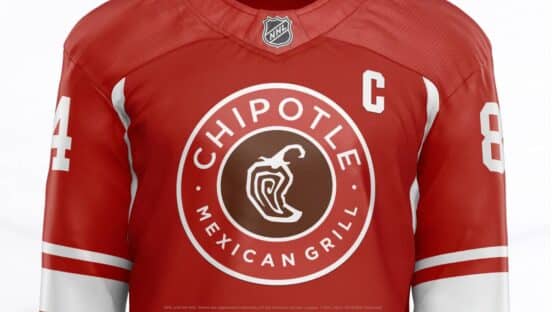Matt de Gruyter often uses the word “ridiculous” to describe his goals. A thousand units in 10 years. Reinvent the burger joint in America. But, truthfully, de Gruyter is just being candid. When de Gruyter and his wife, Cierra, opened the first Next Level Burger in July 2014 on Century Drive in Bend, Oregon, they were already referring to it as a proof-of-concept store.
“My vision was never to open up one concept, one unit, and go about my merry way,” de Gruyter says. “My goal from the beginning was hundreds, if not thousands, to be honest.”
To the best of de Gruyter’s research, no quick-service concept has ever hit 1,000 units in its first decade. Also, stop if you’ve heard a new burger concept challenge the status quo of American food culture before.
De Gruyter understands this reality and the obstacles ahead. He just doesn’t see a reason to bunt with the count full and the bases loaded. The stakes are too high in this business for modest goals. While the data for how many new restaurants make it to Year 2 is loose at best, it’s universally understood that the answer, whatever it might be exactly, is not many. Next Level Burger, meanwhile, has generated buzz since day one.
De Gruyter opened a Southeast Portland location in October 2015 and followed with a store inside Whole Foods 365 in Lake Oswego, Oregon, in July 2016. This past August, another Whole Foods location debuted in Seattle.
Beside the fact business has boomed, even to the point where the first store had to close after eight days when food ran out, Next Level Burger has a hook de Gruyter says nobody else can claim: America’s first 100 percent plant-based burger joint.
When de Gruyter wrote the concept’s business plan in 2013, data showed the amount of diners hoping to reduce their meat and dairy consumption was right around a third of the country. He says it’s grown to two-thirds in just four years. Innova Market Insights’ Kara Nielsen said during an Institute of Food Technologists meeting that product launches worldwide featuring plant-based claims rose 63 percent between 2011–2015, and 38 percent of U.S. consumers go meat-free at least one day a week.
“That’s such a short period of time for that number to jump up so dramatically, 110 million-plus people,” he says. “What was arguably a relatively marginal aspect of the business, and of course still is, is now, I think, even more in the mainstream conscious of the collective. People are becoming more and more aware of what they’re eating.”
De Gruyter makes it clear, however, that Next Level Burger wasn’t fueled by market opportunity. His family already subscribed to a plant-based diet at home and the idea, persisted by his wife, was built around their desire to build a health-minded legacy.
“We did it because it was what we believed in and what we thought was best. And it just happened to line up as far as the trend swinging in the right direction when it comes to plant based and non-GMO organic foods,” he says.
De Gruyter doesn’t have a restaurant background. He joined the Marine Corps out of high school. His father was a geophysicist in the oil and gas business and his mother had a degree in biology. De Gruyter, who didn’t want to enter the same field as his parents, was planning to attend law school when he found out he was having a child. “I decided I better figure out how I was going to start making money as opposed to going in debt to go to school,” he says.
De Gruyter was bartending at a steakhouse when he met some venture capital clients who took an interest. They handed him a business card and suggested he come in for an interview.
The job turned out, ironically enough, to be in oil and gas. He thrived and hit the apex of the American dream. “Beautiful BMW M3, 414 horse power, red sports car. Beautiful home. Two beautiful kids at this point, and a beautiful wife,” he says.
For three years, his wife brought up the “crazy idea of a plant-based burger concept.” De Gruyter shot it down each time. That was until a particularly exhausting business trip left him questioning the dollar-and-cents of his career. He put in his resignation and, less than a year later, cut the ribbon on Next Level Burger.
Moving forward, the concept will grow corporately via stand-alone units and inside Whole Foods’ stores. The partnership with the supermarket giant came about in the early days of Next Level Burger’s Southeast Portland location. A Whole Foods team member who lived nearby fell in love with the concept and pitched it to his team. That following January, Whole Foods reached out and asked de Gruyter if he would be interested in partnering for the Lake Oswego 365 opening.
“It’s been, and I can say this for very few things in my life, the other one is my marriage, it’s absolutely exceeded my expectations in so far as the type of company Whole Foods is and the kind of people that have made it that way,” he says. “The right people found out about what we were doing. They were excited about our 100 percent plant-based menu, our commitment to organic produce and non-GMO ingredients. And also from the standpoint of branding and mission, we are unabashedly a burger joint that serves awesome food that happens to be plant based and, of course, better for you.”
That “unabashedly a burger joint” part is crucial to Next Level Burger’s DNA. You won’t find the words “vegan” or “vegetarian” printed on the menu. In fact, much of what’s featured sounds like it could be served at any road stand in America. Hot Dogs—Frankfurter style served on a whole grain bun. Or Sausage Bacon, The Animal, SoCAL, and Mexicali. There’s a reason for this, of course: It’s not to hide the fact meat is absent, it’s to widen the possibilities.
“Our goal is inclusivity,” he says. “We’re not out to be an exclusive, cool kid, in-group concept. This is for everybody. And this goal of inclusivity I think was best represented by the term plant based.”
“Our official slogan for Next Level Burger when we opened up the doors was ‘Love Your Bun,’” he adds. “My now 10-year-old son still thinks that’s the funniest thing he ever heard. But unofficially my slogan became ‘Feed The People.’ Vegan, in particular, vegetarian as well, those words are buzz words that have a tendency to polarize.”
The Hot Dogs, by the way, which are asked about by guests more than any other item, he says, are a combination of wheat and vegetables, “and then literally everything else is the exact same thing [as a hot dog]. The seasonings. The spices. The processes are so similar. You’re just using plant proteins instead of animal proteins.” There are also dessert offerings, which include hand-spun milkshakes from standard flavors like organic chocolate and vanilla to dark chocolate and peanut butter. All milkshakes are dairy free, allowing guests the option of a coconut or soy soft serve base.
Franchising is off the table for now, de Gruyter says, although it’s not permanently scratched. He wants to build the company according to its cornerstone of ethos, and keeping the process in-house is the best path to accomplish that for the time being. He says he receives emails, hourly some days, from people asking about taking the concept to new markets, whether its Dallas, St. Louis, Ann Arbor, Michigan, New York City or overseas. De Gruyter believes Next Level Burger can work in all of them. The challenge is just getting them there quickly, intelligently, and with an eye always on the future.
“Our goal has been to hit those lofty numbers. But the caveat to that is we have to be able to do that wisely,” he says. “And our goal is to make sure we’re doing it right, which for us is executing on awesome food, awesome service, and tight operations every day. But I absolutely believe that people deserve a healthier choice and I think that’s what NLB represents and it’s on us to get that to as many people as possible.”










